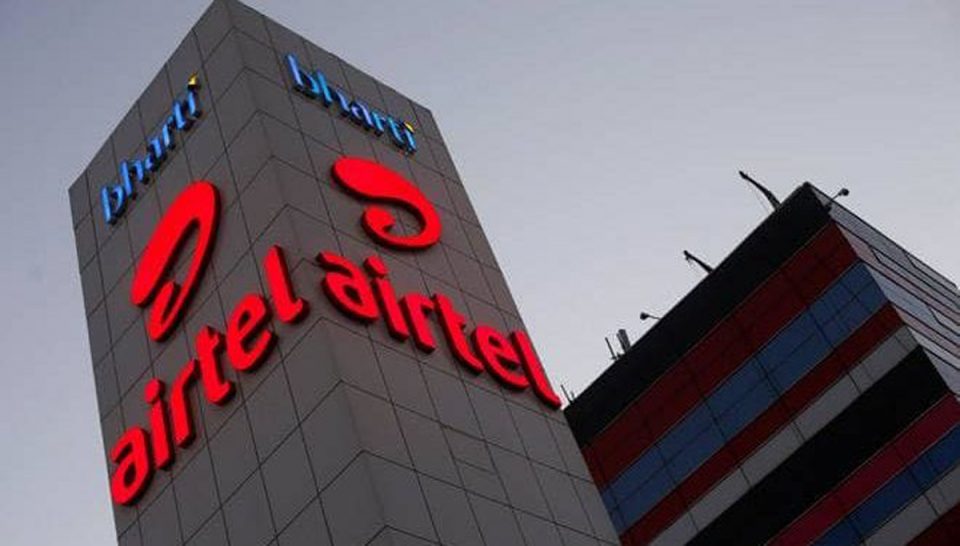Airtel Africa, on Friday announced the Central Bank of Nigeria’s (‘CBN’) final approval of its subsidiary, SMARTCASH Payment Service Bank limited.
The approval from the apex bank regulator for a full Payment Service Bank (‘PSB’) licence, affords the Group the opportunity to deliver a full suite of mobile money services into Nigeria.
According to the company, more details regarding the commencement of operations will be presented with their full-year results announcement in May 2022.
Commenting on this, Segun Ogunsanya, CEO, Airtel Africa, said he was very pleased that Smartcash has been granted approval for a full PSB licence to operate a service bank business in Nigeria and they are now working towards the commencement of business.
“This licence enables us to expand our digital financial products and reach the millions of Nigerians that do not currently have access to traditional financial services. We are delighted to be able to pursue our shared agenda with the Nigerian Government, the CBN and traditional financial institutions to further deepen financial inclusion in the country for the benefit of all citizens and the Nigerian economy.”
It would be recalled that in November 15, 2021, Airtel Africa, a leading provider of telecommunications and mobile money services, with a presence in 14 countries across Africa, confirmed that the Central Bank of Nigeria (‘CBN’) has awarded its subsidiary, Airtel Mobile Commerce Nigeria Ltd, with a full super agent licence.
However, it no news that PSB are a new category of banks with smaller-scale operations compared to commercial banks. The primary goal of establishing PSBs is to increase financial inclusion in rural areas by facilitating high-volume, low-value transactions in a secure, technology-driven environment.
Recently, the Managing Director/CEO of fitc Mrs Chizor Malize urged Financial regulators and operators to embrace over 60 percent of the unbanked in the economy to allow for a balance in the urban and rural market which in turn reflects the Financial Inclusion (FI) generally clamored for.
Explaining, she said that the United Nations has identified seven out of the 17 Sustainable Developmental Goals (SDGs) as itching towards the Financial Inclusion as such global markets and the indigenous companies are compelled to align with the goals.
“Financial Inclusion actually mandates us to pay great attention to the bottom of the pyramid which is over 60 percent untapped market,” she said.
Interpreting this, she said the seven SDGs represents almost 50 percent of the total SDGs.
However, Nigeria has been keen on closing the financial inclusion gap to achieve economic development, raise living standards, and reduce poverty and inequality.
According to report, the government has put in place several policies and initiatives to achieve its goal of 80 percent bankable adult financial inclusion by 2020. Only 64 percent of bankable adults were financially included by the end of the target year.
To improve that percentage, the CBN recently granted MTN and Airtel Africa full approval for PSB licenses. This is in addition to the approval of the 9PSB, Hope PSB and Moneymaster PSB leaving the number at five fully approved PSB in Nigeria.
Payment Service Banks are a new category of banks with smaller-scale operations compared to commercial banks. The primary goal of establishing PSBs is to increase financial inclusion in rural areas by facilitating high-volume, low-value transactions in a secure, technology-driven environment.
This means that in addition to the usual withdraw and send transactions associated with the financial platforms of these telecom brands, they can now engage in more banking activities such as accepting customer deposits, issuing debit and prepaid cards, operating an electronic wallet, investing in FGN and CBN securities, and any other activities prescribed by the Central Bank.
MTN will operate as a PSB via its well-known MoMo Payment Service Bank, and Airtel will do the same via its Smartcash Payment Service Bank. This brings MoMo and Smart Cash into the cohort of Globacom’s Money Master and 9Mobile’s 9PSB, other telecom brands already operating in the financial ecosystem.
Although PSBs operate similarly to commercial banks, certain activities distinguish them. PSBs cannot make loans, issue credit cards, accept foreign currency deposits, or engage in insurance underwriting.
CBN is seeking to onboard 95 percent of the bankable adults into financial services by 2024, and the telecommunication industry is one of the best bets to achieve this in a short while. Both MTN and Airtel have a massive infrastructure, and penetration into communities held back by long distances would be easier.
As of October 2021, MTN, which has the highest number of subscribers in the telecom sector, had 67.5 million subscribers, while Airtel Nigeria had 42 million subscribers. Although there’s the issue of people having multiple sims, the sifted numbers from just these two telcos would still be higher than the number of bank account holders in Nigeria, which is 50,728,469.
Organically, this translates to increased financial inclusion because, rather than a bank account, all you need is a phone number to open an account, send and receive money, check balance, make deposits, cash withdrawals, and more.
Nigeria’s population is constantly increasing, yet many remain unbanked, hence the need for more initiatives to improve this situation. With MTN and Airtel’s final PSB approval, the financial industry would see an influx of new players. Subsidiaries of mobile network operators (aka telcos), mobile money operators, retail chains (supermarkets), and banking agents will all want to follow the trail.




